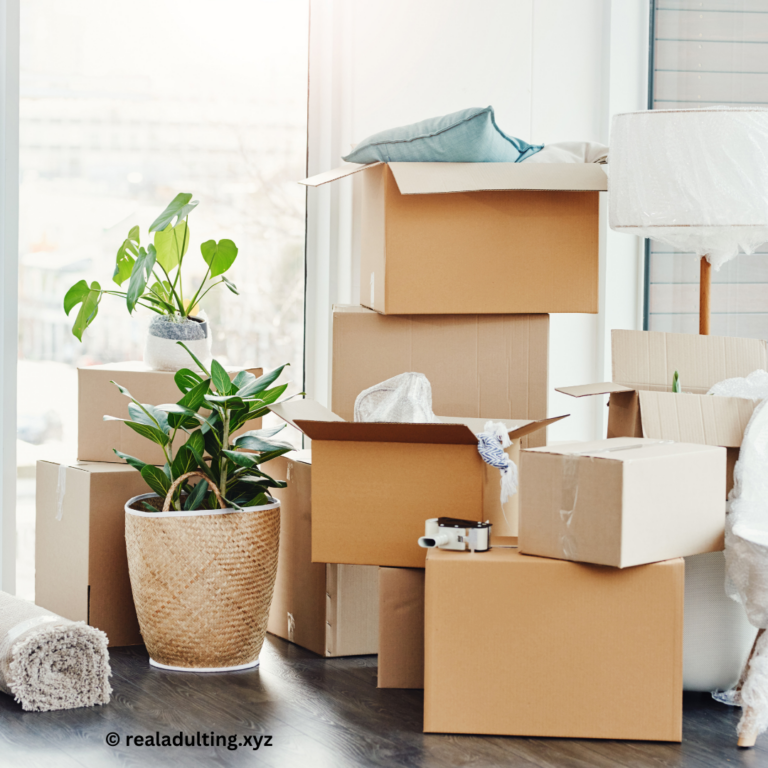12 Tips for Moving Out for the First Time
Moving out for the first time is a big deal. It’s a chance to start fresh, create your own space, and really carve out a life of your own. It’s exciting and exhilarating. But it can also be terrifying.
Chances are your support system is still around, but it also means finding your own way. It can be tough to know where to start and how to make the right decision. From decorating your new place to building an adult life, there’s a lot to think about.
Luckily, we’ve got a few great tips for moving out for the first time to help get you off on the right foot.
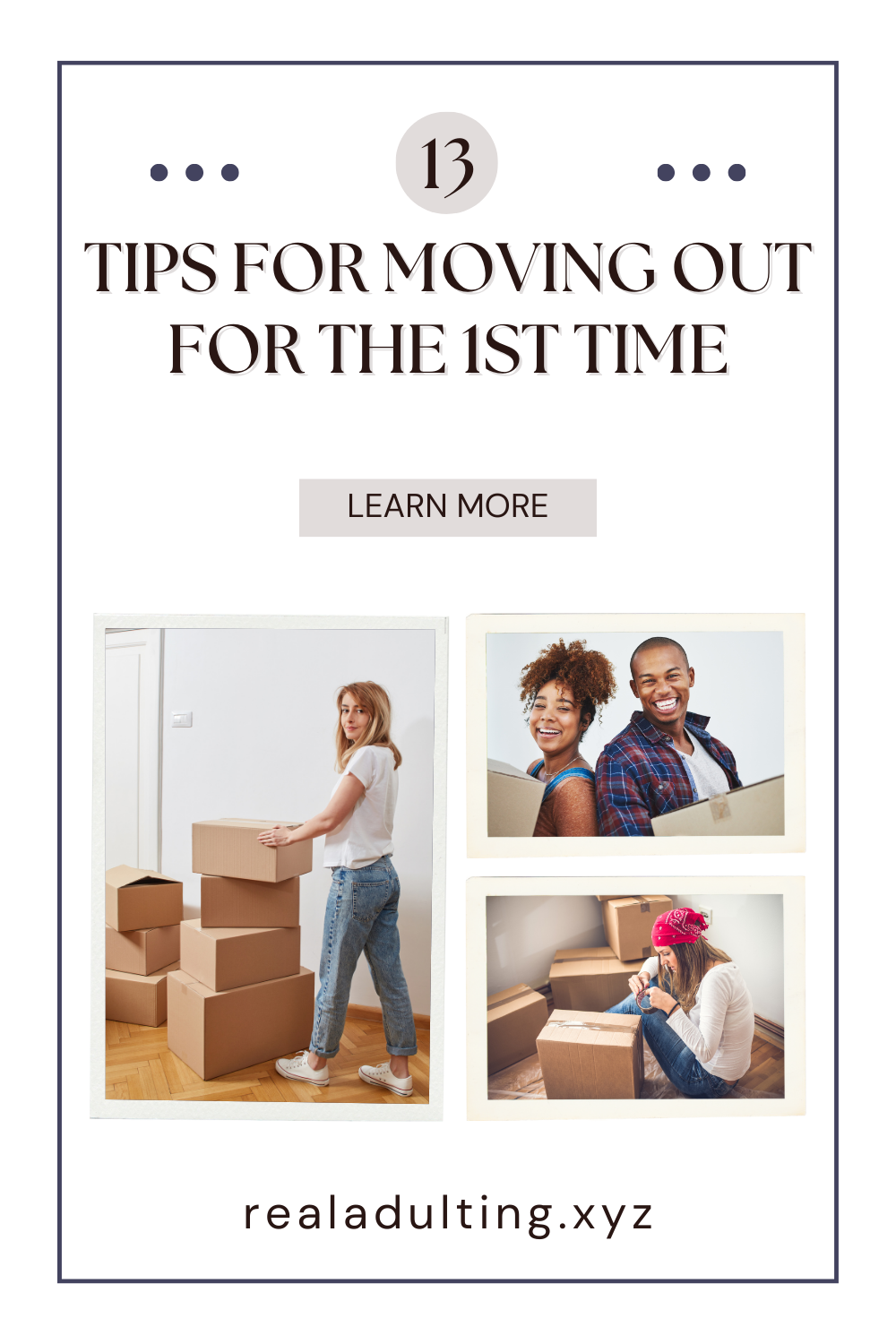
Tips for Moving Out for the First Time
As you embark on this new journey of independence, having a plan can ease the transition and help you avoid common pitfalls. The following tips aim to provide practical advice on key aspects of moving out for the first time.
They encompass everything from financial planning to home essentials and social adjustments you might face. Let’s dive in and unpack these tips to ensure you’re well-prepared for this exciting chapter of your life.
1. Plan ahead
You don’t want to wait until the last minute to start packing and planning your move. Moving is a big deal, and it takes a lot of time and effort.
The more you can do in advance, the better. It’s important that you give yourself plenty of time to sort out your belongings, figure out the life you want to live, and plan your budget. Moving is a great opportunity to declutter and get rid of things you don’t need.
So take some time to go through your belongings and decide what you want to keep and what you can live without. It’s also important you give yourself the planning time to figure out what you need to do to make your future life a reality.
2. Stick to a budget
Living on your own is expensive, especially if you’re moving from living under your parent’s roof. That means you’re going to need to figure out a budget and stick to it. Make sure you have a realistic idea of your income and your expenses.
It’s important to account for things like rent, utilities, food, and transportation. You should also factor in things like furniture, decorating, and other household items. It’s a good idea to start saving up as early as possible so you’re not caught off guard by the cost of moving.

3. Keep it simple
The world is a complex place and moving out can be stressful, you want to keep it as simple as possible. That means not making any big changes, especially things that could impact your finances like quitting your job.
It’s also important to have a solid plan for where you’re going to live and what you’re going to do when you get there.
When it comes to planning your adult life, look at where you’re going to be working and spending your time, then try to find a place that’s close by. Not only is it more convenient, but it can also save you a lot of money.
4. Practice good habits
A big thing about being an adult is taking care of yourself. Now that you’re going to be living on your own, you’re going to have to get into the habit of doing things like cooking and cleaning.
If you’ve never really had to do these things before, it can be tough to know where to start. But there are plenty of resources out there to help you, from cooking blogs to cleaning tips. Just make sure you’re setting aside the time to take care of yourself and your space.
You’ll also want to stay on top of laundry and paying bills. All of these might seem like small things, but they’ll make a big difference in how smoothly your transition to living on your own goes.
5. Prepare emotionally
Moving out is a big change, and it can be tough to adjust. If you’re feeling scared or overwhelmed, that’s totally normal. Give yourself time to adjust to the change and be patient with yourself.
Talk to your friends and family about your feelings and let them know if you need support. If you’re struggling, there are also plenty of resources out there to help you, from counseling services to support groups.
If you’re feeling unsure or scared about the changes ahead, that’s normal—but remember that you’re capable of handling this new chapter in your life.
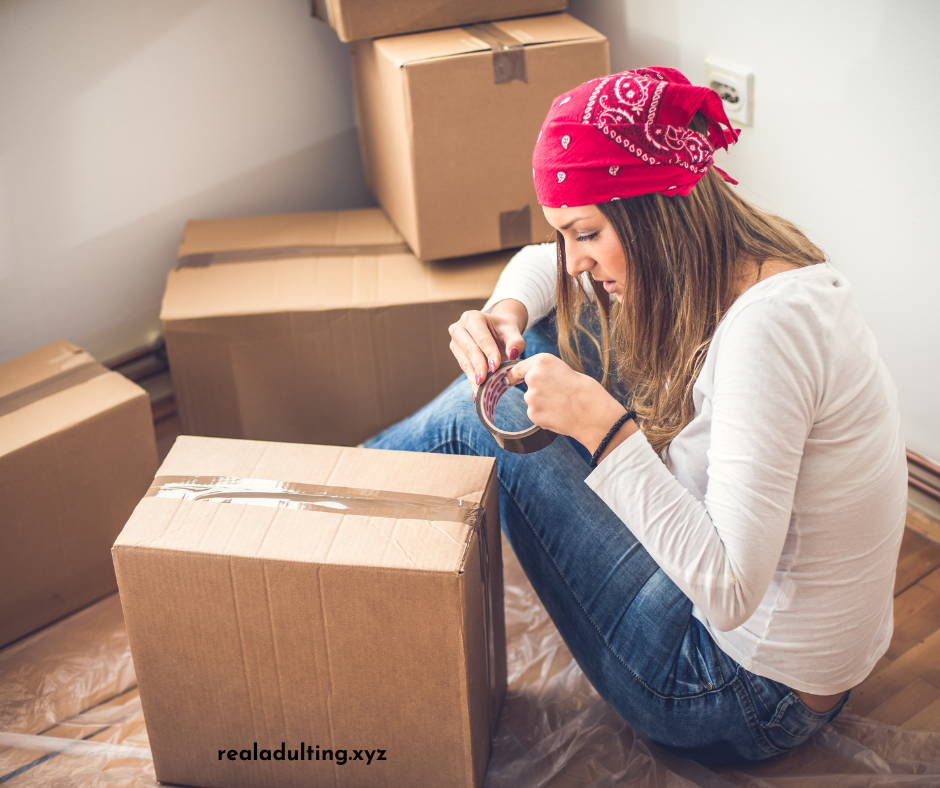
6. Bring what you can
One of the biggest expenses when moving out is furnishing your new place. If you can, try to bring as much furniture and décor with you. Honestly, you’re going to be leaving behind a lot of familiar things—but that doesn’t mean you have to start from scratch in your new place.
If there are items that hold sentimental value or that you know you’ll need, don’t hesitate to bring them with you. It’ll make your new place feel a little more like home. Just make sure you double-check with your parents if there’s any question about who’s stuff it really is!
7. Get organized
Before you start packing for your move, take some time to get organized. Create a moving checklist, and make sure you label all of your boxes so you know what’s inside them. This will make the unpacking process much easier—and less stressful.
You should also make sure you’re familiar with your new place, so you know where everything is going to go. If possible, take a tour of your new place before you move in, so you can start planning where everything will go.
8. Make arrangements before you move
Something that you’re probably not familiar with is taking care of the necessary arrangements like electricity and internet. You’re going to want to make sure these things are set up before you move in, so you’re not left without power or Wi-Fi on your first night.
You should also notify your bank and any other companies you work with of your new address, so your bills and paychecks get sent to the right place.
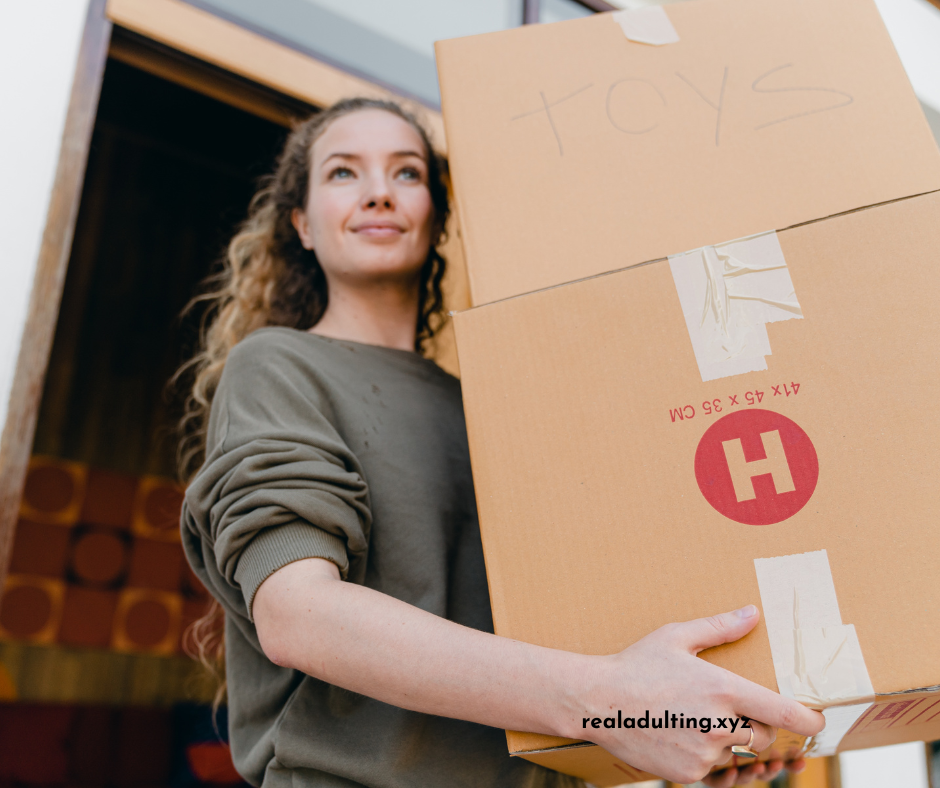
9. Look for deals and discounts
Furnishing and decorating your new place can be costly, but there are ways to save money. Shop at thrift stores, look for deals and discounts online, and scour yard sales for furniture and home décor finds.
You can also ask friends and family if they have any gently used items that you could borrow or buy from them. With a little bit of creativity, you can save a lot of money on the things you need for your new place.
10. Get creative with your space
If you’re working with a small space, get creative with your furnishings and storage solutions. Look for pieces that serve multiple purposes, like a coffee table that doubles as a storage ottoman, or a daybed that can be used as a sofa during the day and a bed at night.
Get creative with your storage solutions, too. If you don’t have a lot of closet space, look for alternate places to store your things, like under the bed or in storage bins.
11. Settle in
Once you’ve moved into your new place, it’s time to start settling in. Unpack your boxes, hang up some pictures, and put out a few plants or knick-knacks to make your place feel like home. And don’t forget to introduce yourself to your new neighbors—you might be surprised at how friendly they are.
12. Enjoy your newfound freedom!
Living on your own for the first time can be challenging, but it’s also an exciting and liberating experience. savor your newfound freedom, and take advantage of all the opportunities that come with it.
From exploring your city to decorating your new place , this is a time to enjoy your independence and make some great memories.
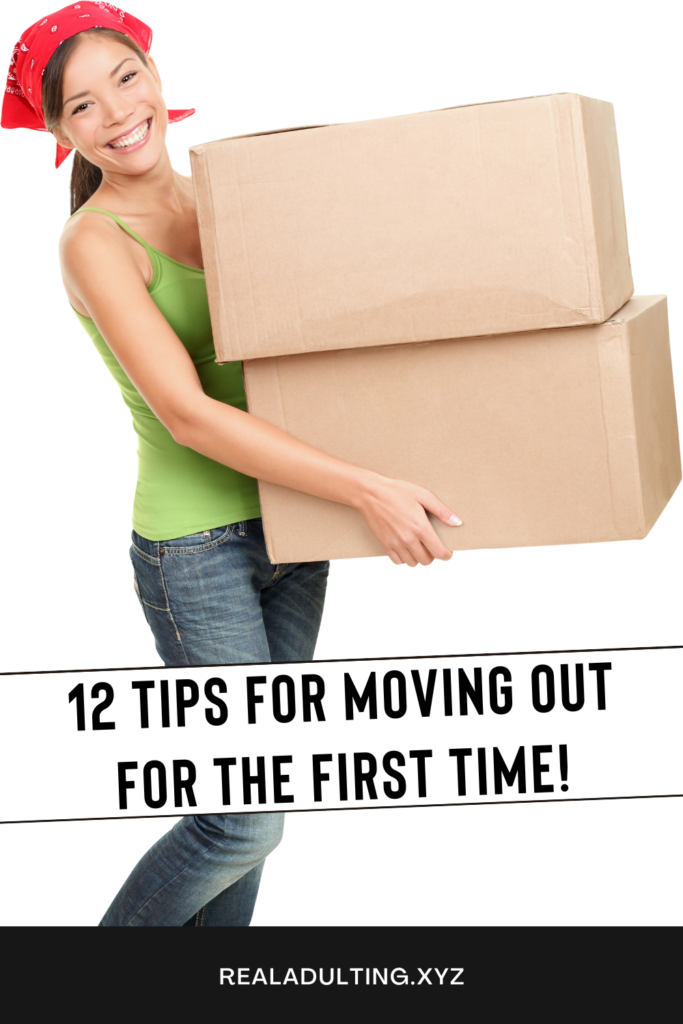
Ready to take the next step?
Moving out for the first time is a big step, but it’s also a great opportunity to gain some independence and learn some new life skills. By following these tips, you can make the transition to your new place smooth and stress-free.





